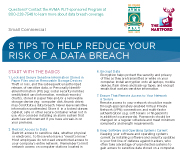| News for animal health professionals |  |
| Veterinary Medicine Update |  |  | | |  | - Deadly 1918 influenza sequenced, offers insight into modern strains
Scientists have successfully sequenced the genetic material of the 1918 pandemic influenza strain that killed some 50 million people around the world and found it is related to the 1957, 1968, and 2009 pandemic strains. Comparing the 1918 virus to animal influenza viruses helps scientists study how the virus moves between species and which strains might be likely to do so one day. ScienceDaily (9/11)      - Oncolytic viral therapy shows promise in treating canine cancer
Myxoma, a pox virus that infects rabbits but not dogs or humans, successfully infected and killed canine cancer cells in culture, according to a recently published study by researchers at the University of Illinois at Urbana-Champaign. Oncolytic therapy, as the process is called, has been successful in cats with cancer when combined with traditional treatment. "Ideally, what would happen is the virus would get into a few cancer cells, cause cell death and then spread to the other tumor cells nearby," said veterinarian and pathobiology professor Amy MacNeill. Trials in dogs are a few years away, but it's possible the treatment will one day also benefit humans with cancer. RedOrbit (9/11)      - Penn opens facility to train, study detection dogs
The University of Pennsylvania has opened the Penn Vet Working Dog Center, a facility where dogs will be trained to find humans in disaster situations, allowing researchers to help determine how the dogs are successful. "The detection area is so important because these dogs are better than any machine that we have — and they can save lives," said veterinarian Cynthia Otto, an emergency, critical care and disaster medicine expert who founded the center. Dr. Otto worked with detection dogs at ground zero after the Sept. 11, 2001, attacks and has consulted with the military on search-and-rescue dogs. National Public Radio (text and audio) (9/11)       | Data Breach 101—How to Avoid a Virtual Catastrophe!
Download FREE PLIT tools and the complimentary webinar recording to help you reduce and manage your risks. Every time you collect a check, debit card, or credit card payment from a client, you have possession of personally identifiable information and can be held responsible if a hacker steals it. | |
| Animal News |  |  | | - Turning the tables: When a veterinarian is the client
Veterinarian Ann Hohenhaus usually brings her animals to her own clinic for care, but when her foster kittens needed an examination at a rescue facility after one of them wouldn't eat, Dr. Hohenhaus gained a first-hand appreciation for owners' experiences. She relates her concern for the cats but notes that veterinarians are also emotionally invested in the care of their patients. A veterinarian who listens and takes the owner's concerns and ideas into account helps allay fears, she adds. WebMD/Tales from the Pet Clinic blog (9/12)      - S.D. city overrun with skunks, raising concerns about rabies
Residents of Pierre, S.D., are dealing with a swarm of skunks thanks to hot, dry weather. The animals have moved closer to people in search of food, armed with more than just their characteristic odor, officials say. "When people hear of a skunk, they all worry they're going to get sprayed and it's going to stink, but the stink is temporary, but exposure to rabies, that is much more serious. That is a fatal disease," said state epidemiologist Lon Kightlinger. Some 60% of South Dakota skunks that are tested for rabies carry the disease, Kightlinger said. Los Angeles Times/Nation Now blog (tiered subscription model) (9/11)       | Earn 2X rewards points on shipping costs with The Business Gold Rewards Card from American Express OPEN. Designed to earn Membership Rewards® points faster:
• 3X points on airfare
• 2X points on advertising, gas, and shipping
• 1X points on everything else
• Limited Time Offer: 50K bonus points when you spend $5K in your first 3 months of Card membership†
LEARN MORE AND APPLY †Terms & Restrictions Apply. |
  - How to handle problems with your Web host
A recent outage at GoDaddy illustrates the importance of preparing for problems with your Web service provider. If your provider goes down, you should let customers know about the problem by using social media, e-mail and other methods of communication, Jonathan Blum and Alex Dalenberg write. In this situation, you should also think about moving your website to a new hosting company, they write. Entrepreneur online/The Daily Dose blog (9/11)       | Reach Health Care Leaders with SmartBrief
SmartBrief delivers an engaged audience of more than a half-million health care providers and business leaders, driving best-in-class click through rates and consistent reader engagement. To find out if we're reaching your target audience, click here. |

| Association News |  |  | | - One Health - It's all connected
One Health is the integrative effort of multiple disciplines working locally, nationally, and globally to attain optimal health for people, animals, and the environment. Together, the three make up the One Health triad, and the health of each is inextricably connected to the others in the triad. Understanding and addressing the health issues created at this intersection is the foundation for the concept of One Health. View AVMA's One Health resources.     
| SmartQuote |  |  | |  | Many of life's failures are people who did not realize how close they were to success when they gave up."
--Thomas Edison,
American inventor      |
| | | The news summaries appearing in Animal Health SmartBrief are based on original information from news organizations and are produced by SmartBrief, Inc., an independent e-mail newsletter publisher. The AVMA is not responsible for the content of sites that are external to the AVMA. Linking to a website does not constitute an endorsement by the AVMA of the site or the information presented on the site. Questions and comments should be directed to SmartBrief at avma@smartbrief.com. | This SmartBrief was created for jmabs1@gmail.com
| Advertise | | Account Director: Aaron Kern 202-407-7866 | | | | | | Read more at SmartBrief.com | | A powerful website for SmartBrief readers including: | | | | | | | | | | Recent Animal Health SmartBrief Issues: - Tuesday, September 11, 2012
- Monday, September 10, 2012
- Friday, September 07, 2012
- Thursday, September 06, 2012
- Wednesday, September 05, 2012
| | | Lead Editor: Melissa Turner
Sales Account Director: Sam Fuchs
Mailing Address:
SmartBrief, Inc.®, 555 11th ST NW, Suite 600, Washington, DC 20004 | | | | | | © 1999-2012 SmartBrief, Inc.® Legal Information |
|


No comments:
Post a Comment